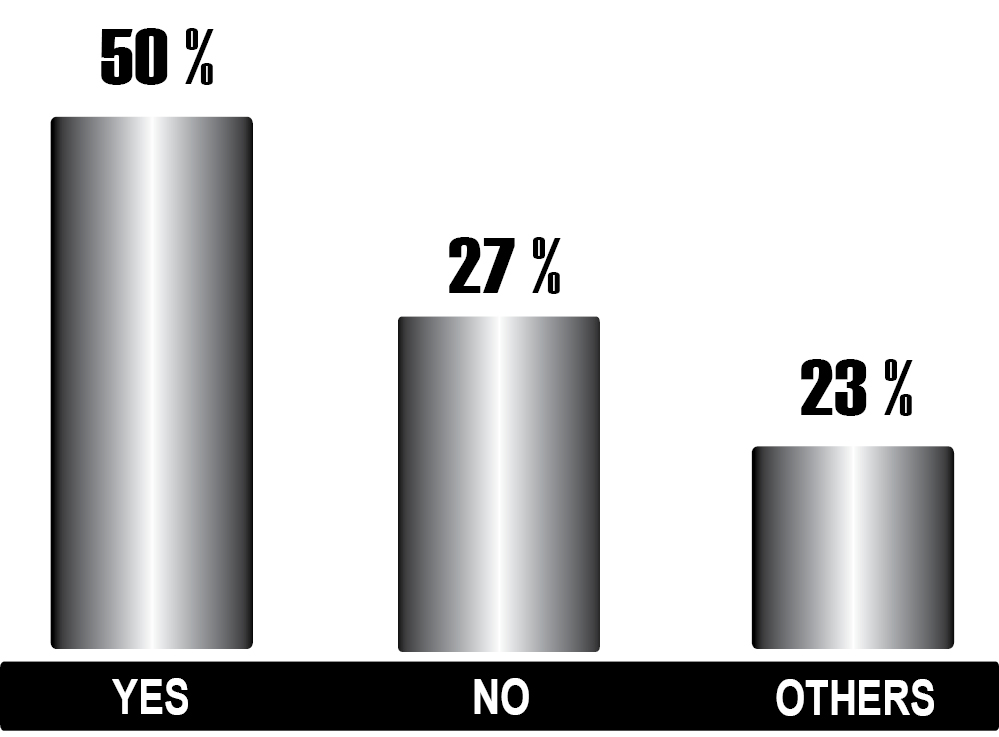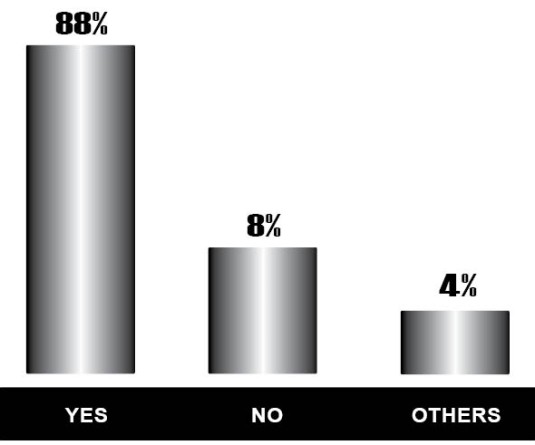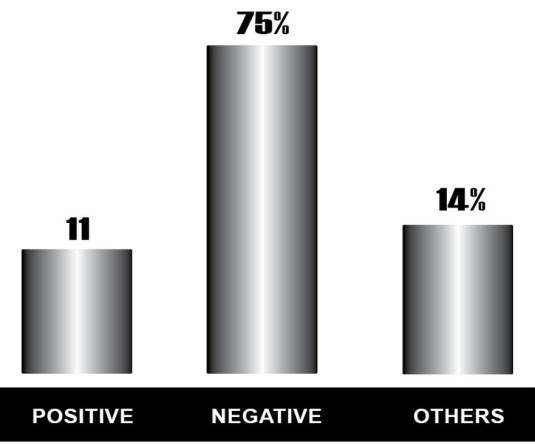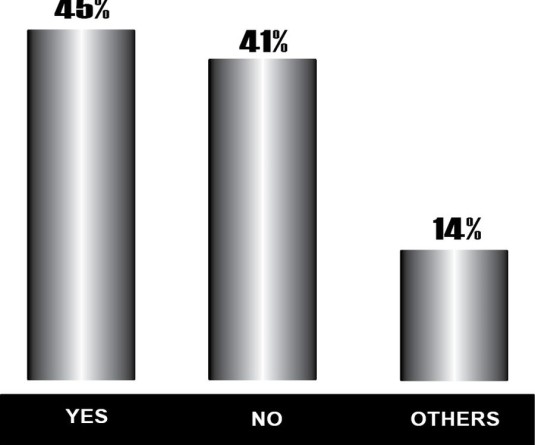11

Some of those who voted YES had this to say:
• Yes. Tribalism and groupism consists of tribes have increased and started showing their ugly heads which is not a good sign for Naga unity. Each tribe and group consists of tribes only think and work for individual benefits. No tribe has shown any big hearted and true leadership role in Naga society whether for Naga political issue or economic or social or religion issue. Each tribe view other tribe as potential threat or competitor in Naga political movement. There is sharp division among Naga tribes within Nagaland state and also with Nagas of outside Nagaland state.
• Wanting to say "No". But it's a "Yes"
• Oh yes. Very much.!! In governance, it is contributing to corruption in the state in the form of nepotism. For The answer to WHY, i feel it requires a clarity on the WHERE. In politics, it is increasing because of the absence of a credible anti-graft institution. In society and the church, i feel it is this mentality of MY TRIBE and YOUR TRIBE or THEIR TRIBE. It means absence of a clear vision for a progressive society.
• Yes. Ego problem
• Yes, over the years our Naga people are becoming more narrow in our thinking and outlook. We have forgotten our roots and fallen prey to a consumer culture which is destroying us.
• Yes. Because the bureaucrats and politicians who appoints their own tribes, and tribals groups and students bodies which always emphasize on favoring their own tribes in all works of life during their annual gatherings.
• Yes. State political leaders encourage it for electoral gains
• Yes. The system of quotas ensures that the hegemony of who got education and state/religion access before whom determines how 'tribes' position themselves vis-a-vis each other (thereby promoting advanced-backward dynamics), and forge relationships with each other. This is not to suggest that positive discrimination is not required given the condition of marginalised groups(mostly consisted of the poor and women in every such group), but state corruption ensures that elites will always benefit in each sub-group and to maintain their position at the top of the charts, continue to fan the fire of 'tribalism' which works greatly to their benefit.
• Yes. Hunger for power
• Yes. Selfishness
• Yes. The sin of selfishness and hatred towards another brother tribe had led to insecurities. The feeling of fear and insecurities are a result of the guilt of jealousy and hatred. It will only give birth to Extinction of that particular tribe eventually as a judgement from God.
• Yes. Due unequal treatment to the people from other tribe.
Some of those who voted NO had this to say:
• No. Because, we are more educated. We know it's a small world. Now We have childhood friends, classmates, neighbours, go to same church, inter marriages from other tribes etc. Through all these we know each others cultures better and learnt to understand and to appreciate each other. And tribalism has no place in the modern world. We must minimize the use of word tribalism in our daily vocabulary in the family, school, churches, social media also.
• No. A sense of being westernized has increased over the years. Lifestyle of majority of Nagas especially those of wealthy families is a clear example to the statement.
Some of those who voted OTHERS had this to say:
• Two ways of looking at it: a) Being bestowed with such a rich culture, the responsibility to preserve our culture and tradition is passed down to the young generations. The pride of one's tribe can either be handled with responsibility or recklessness. The tendency to superimpose or showcase the prowess of one's own tribe is an inherent nature as a human. We do feel proud of our traditional values and the rich heritage of our ancestral past. That's where Nagas can either learn to appreciate each other's unique culture and live in peace or literally start destroying each other in all possible platforms as we've witnessed some incidents in the recent past. b) The Nagas studying or working across the length and breadth of India and abroad teaches us a lot of things. When we are away from our homeland, tribes or traditional cuisines, dialects, dress etc. don't divide us. We appreciate and learn to accept the similarities and the differences of each tribe. We realise that our unity is an integral part of our society and nation building. The utilization of our folk songs, dances and festivals as a platform for diplomatic talks and friendship is increasing and should be strengthened by the participation of people from all walks of life. If each of us realise that fighting among ourselves will only slow down our pace in all aspects of development, change, economic growth and social upliftment, perhaps we will think again about being tribalistic. Tribalism is inversely proportional to peaceful coexistence and the sooner we do away with it, the better it will be for Nagas to prosper. Kuknalim.
• Like any tribe, Nagas have always been tribalist and will most likely be always. But rather than being negatively tribalistic, people at large have narrowed themselves to individualism & drunk to the pleasure of convenience, and tribal affinity is just one of many banners to legitimise & justify the impotency.





